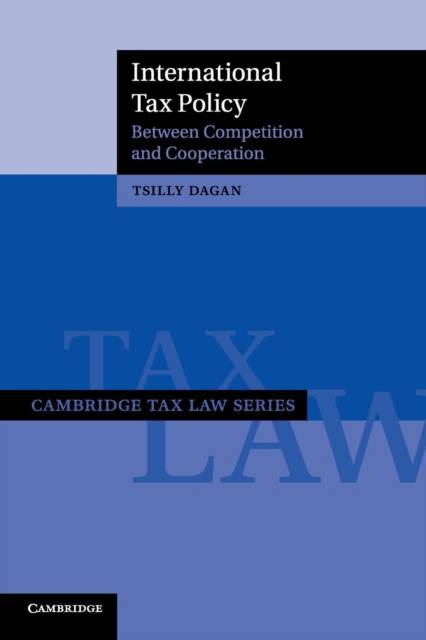
Je cadeautjes zeker op tijd in huis hebben voor de feestdagen? Kom langs in onze winkels en vind het perfecte geschenk!
- Afhalen na 1 uur in een winkel met voorraad
- Gratis thuislevering in België vanaf € 30
- Ruim aanbod met 7 miljoen producten
Je cadeautjes zeker op tijd in huis hebben voor de feestdagen? Kom langs in onze winkels en vind het perfecte geschenk!
- Afhalen na 1 uur in een winkel met voorraad
- Gratis thuislevering in België vanaf € 30
- Ruim aanbod met 7 miljoen producten
Zoeken
€ 60,95
+ 121 punten
Uitvoering
Omschrijving
Bringing a unique voice to international taxation, this book argues against the conventional support of multilateral co-operation in favour of structured competition as a way to promote both justice and efficiency in international tax policy. Tsilly Dagan analyzes international taxation as a decentralized market, where governments have increasingly become strategic actors. While many of the challenges of the current international tax regime derive from this decentralized competitive structure, Dagan argues that curtailing competition through centralization is not necessarily the answer. Conversely, competition - if properly calibrated and notwithstanding its dubious reputation - is conducive, rather than detrimental, to both efficiency and global justice. International Tax Policy begins with the basic normative goals of income taxation, explaining how competition transforms them and analyzing the strategic game states play on the bilateral and multilateral level. It then considers the costs and benefits of co-operation and competition in terms of efficiency and justice.
Specificaties
Betrokkenen
- Auteur(s):
- Uitgeverij:
Inhoud
- Aantal bladzijden:
- 262
- Taal:
- Engels
- Reeks:
Eigenschappen
- Productcode (EAN):
- 9781107531031
- Verschijningsdatum:
- 6/12/2018
- Uitvoering:
- Paperback
- Formaat:
- Trade paperback (VS)
- Afmetingen:
- 152 mm x 229 mm
- Gewicht:
- 353 g

Alleen bij Standaard Boekhandel
+ 121 punten op je klantenkaart van Standaard Boekhandel
Beoordelingen
We publiceren alleen reviews die voldoen aan de voorwaarden voor reviews. Bekijk onze voorwaarden voor reviews.









